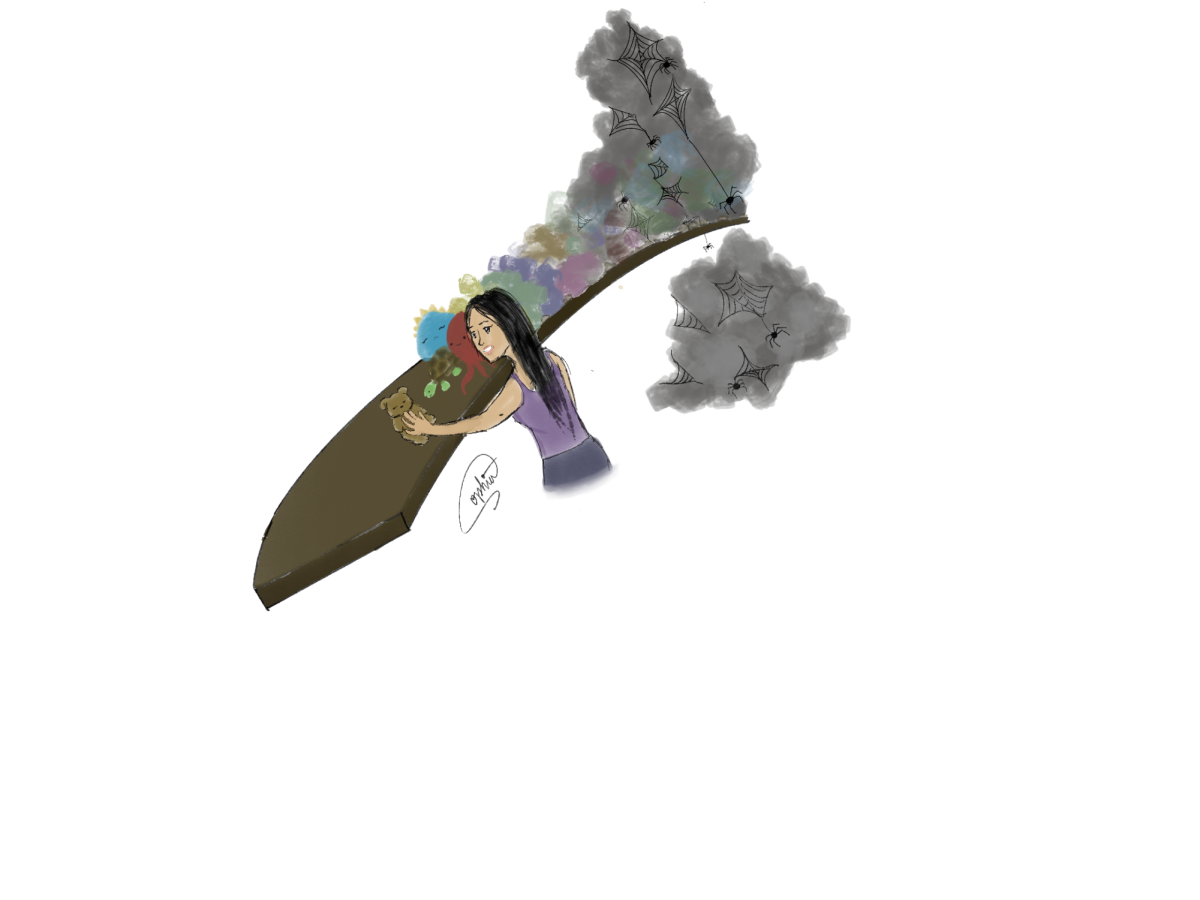In sixth grade during my first science fair, I shuffled between long rows of blue tables with hundreds of boards looming over me. Each board was filled with information in a seemingly foreign language – detailed descriptions of novel gene-editing techniques, complex algorithms for quantum lung cancer detection, gloves that could turn sign language into English words, and more. The variety was both overwhelming and inspiring. Now, nearly five years later, when I walk through the same endless rows of blue tables, I feel comfort and a sense of belonging. As my science fair project has evolved over five years, growing new branches, new meanings, and new worth, so have I. I can confidently say that science fairs have changed who I am as a person.
To many, the words “science fair” bring them back to baking soda and vinegar volcanoes and elephant’s toothpaste experiments, but I have discovered that science fairs can be so much more. Internationally standardized science competitions encourage students to avoid repeating projects that have already been created, and instead put in the effort to discover something new. Even with the current rate that knowledge is progressing, our universe has so many unsolved questions, lingering problems, and solutions waiting to be found. This is where science fairs come in. Aside from it being cool that I can discover something new about the world, science fairs push me to be a thinker, experimenter, and problem solver.
As such, the purpose of science fairs differs greatly from what is normally taught in the typical science class. Science classes in school focus on covering a set curriculum meant to give students an overview of a certain topic. Labs are often standardized and have been repeated millions of times, with students expected to get similar, predictable results. While these labs are fun and useful for hands-on learning, participating in science fairs opens new avenues of exploration and discovery. They have allowed me to immerse myself in a community where everyone is passionate about science. Instead of taking a class just for the sake of the credit, the students who participate in science fairs bring a collective, raw passion for what they do. The enthusiasm has been infectious and motivating, which is especially useful since the process of working on a project is laden with countless setbacks.
Problems are guaranteed to occur when working on a project. Most of the time, I am searching for some correlation or result that may or may not exist. Over long periods of time and bouts of constant failure, I have developed a “just keep swimming” attitude. According to the scientific method, if something doesn’t go right, or if a procedure is flawed, the scientist should go back to research, revise their plans, and try again and again. When the project I had spent months collecting data for produced inaccurate results, I realized that no matter how many failures I encountered, I would only ever be able to get accurate results if I just kept trying. I’ve found that over time, this scientific attitude has bled into my attitude towards life. Whereas back in middle school, even the smallest setback frustrated me to no end, I now usually find myself unfazed by much larger ones. I already knew that moping about failures wouldn’t bring me anywhere, but the attitude I acquired from participating in science fairs has driven me to start taking initiative.
While science fairs may not be for everyone, the five years I have spent developing and refining projects have allowed me to become a more steadfast, enthusiastic, and innovative person. So, although the years I have left to participate in science fairs are limited, the community and attitude I have gained will last for many years to come.





